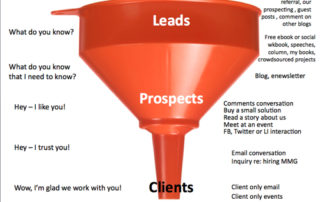How agencies should use content to attract prospects
Content marketing is all the rage but most of it is just packaging. Frankly -- agencies have been using content marketing for decades for their clients. It's not new. But what I think is new is the idea that agencies should use content to attract prospects for themselves. This type of content management strategy was the focus of an article I wrote for The Agency Post before the holidays. Agencies are, by their very nature, superb story tellers. And they have an incredible depth of knowledge when it comes to marketing strategy, their own agency's niches, etc. I get the whole "we're too busy doing it for our clients to do it for ourselves excuse" but honestly -- that needs to stop. In theory, agencies should be perfectly structured to create content so intriguing that people never want to leave the conversation. But the reality is most agencies practice a conservative approach with their content management strategy because they are paranoid about sharing anything of genuine value. They fear their competition might see it or that they might turn away potential clients because of what is posted. They’re also afraid that if they give knowledge away for free, the reader might never become a client. This is why most agencies are still just curating content or talking about their business, which of course means they’re not inspiring anyone. They are simply restating their company slogan or biography to exhaustion. If what you have to offer is high quality and helpful to the client, he or she will come back. Today, the model for professional services new business efforts is -- you give first. Share something of value. Demonstrate your expertise. Show me you know your [...]











